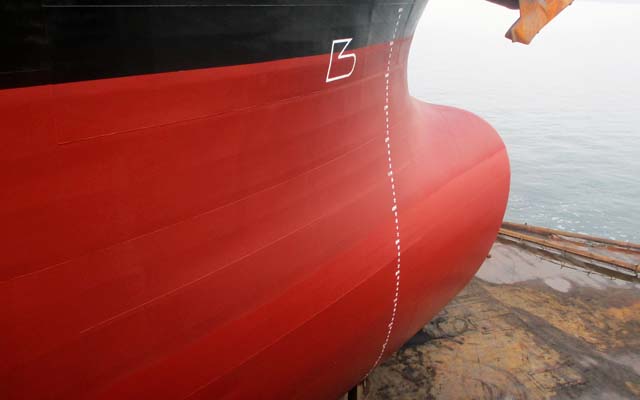Coatings manufacturer PPG has launched PPG Nexeon 810, described as an innovative copper-free antifouling developed with a strong emphasis on vessel performance, emissions reduction and sustainability.
Independent ISO 19030 and International Towing Tank Conference standard tests have confirmed that the ultra-smooth surface of PPG Nexeon 810 can yield a boost in power of up to 10% and enhance operational efficiency by up to 15% due to improved fouling control performance, depending on vessel type and operating conditions.
Using Nexeon 810 can reduce fuel consumption and significantly lower GHG emissions, enabling a vessel to sustain higher speeds for the same power while helping vessel owners and operators remain compliant with CII requirements. The coating has been formulated to achieve a total reduction of up to 25% in GHG emissions compared to traditional antifouling coatings and will support 60 days of idle time resistance with minimal speed loss.
PPG’s binder technology ensures that the coating offers controlled and predictable solubility, guaranteeing strong performance throughout the vessel’s operational period. The coating is suitable for electrostatic application and offers high colour retention throughout its service life.
Joanna van Helmond, PPG global product manager said: “PPG Nexeon 810 coating provides the ultimate combination of advanced coatings technology with improved vessel performance and responsible environmental protection. Thanks to PPG’s sustainably advantaged product development process, our customers can enjoy easier application and improved coating performance across the operating life of their vessels.”
The copper-free technology is characterised by a significantly reduced biocide content. The binder technology enables the gradual release and operation of the biocides near the surface; upon entering the water, the combined effects of sunlight and ocean bacteria kickstart the breakdown of these organic biocides.
The potential for electrostatic application is considered a significant benefit that is not available in conventional antifouling coatings. The transfer efficiency achieved through electrostatic spraying provides a uniform and ultrasmooth film as well as a decrease in overspray and waste, resulting in a significant reduction in paint consumption and improved health and safety benefits when compared to airless spraying.
Image: PPG has unveiled Nexeon 810, an ultra low-friction, premium copper-free antifouling said to deliver emissions savings (source: PPG)



